Introduction & Analysis
This collection of open-source English-language news articles published over the past week highlights significant events and issues concerning Myanmar. They present a snapshot of the country's safety and security landscape.
- The Junta continues to use aerial bombs, often supplied or technically supported by Chinese firms, and forcing conscripts onto frontlines against resistance forces like the Arakan Army (AA), Kachin Independence Army (KIA), and People's Defense Forces (PDFs), who now control significant territory and border crossings.
- This conflict has led to severe human rights violations, including the junta's increased aerial bombings on civilian targets, forced conscription, extortion, and rampant kidnappings by both pro-military and some resistance elements, compounded by political prisoner deaths due to medical neglect.
- China maintains significant influence, supporting the junta's arms production and brokering ceasefires, while the U.S. and India are exploring deepened cooperation to counter this dominance and support the resistance, despite the Trump administration's aid cuts and controversial diplomatic gestures towards the junta.
- Myanmar is also grappling with environmental degradation from rare earth mining in Kachin State, the junta's rollout of a national e-ID system, and the prevalent use of Starlink by scam centers to evade internet blackouts, alongside the aftermath of a rare supershear earthquake in March 2025.
Conflict
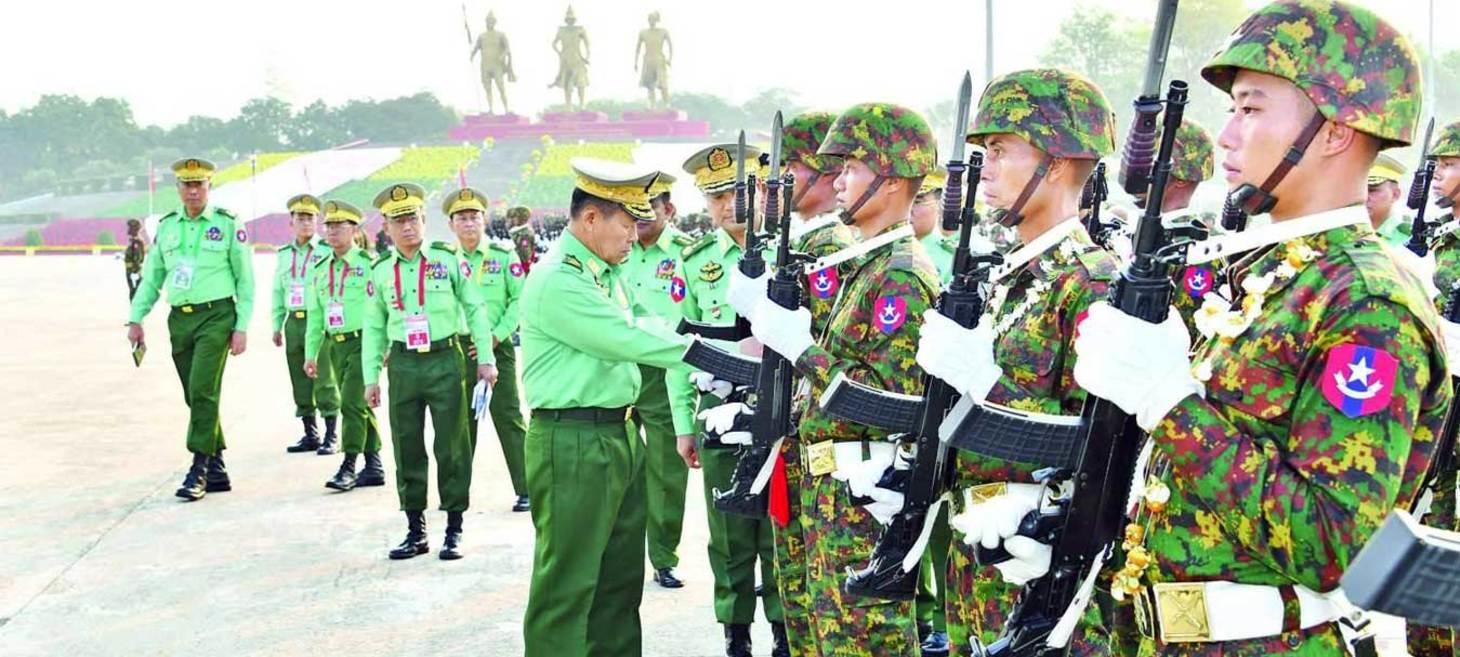
Junta Troops Extort and Intimidate Villagers in Ywangan
Myanmar junta troops and allied Pyu Saw Hti militia members have been systematically extorting money and food from villagers in northern Ywangan Township, southern Shan State, since their arrival on July 18, 2025. These forces demand recurring payments of 500,000 kyats per village and 2,000 kyats per household, force villagers to accommodate them and cook meals, cut mobile networks, impose strict curfews, and have threatened collective punishment for any harm to Pyu Saw Hti members. Consequently, local villagers are left terrified, isolated by communication blackouts, and enduring severe hardships under military occupation, fearing reprisals while struggling to survive.
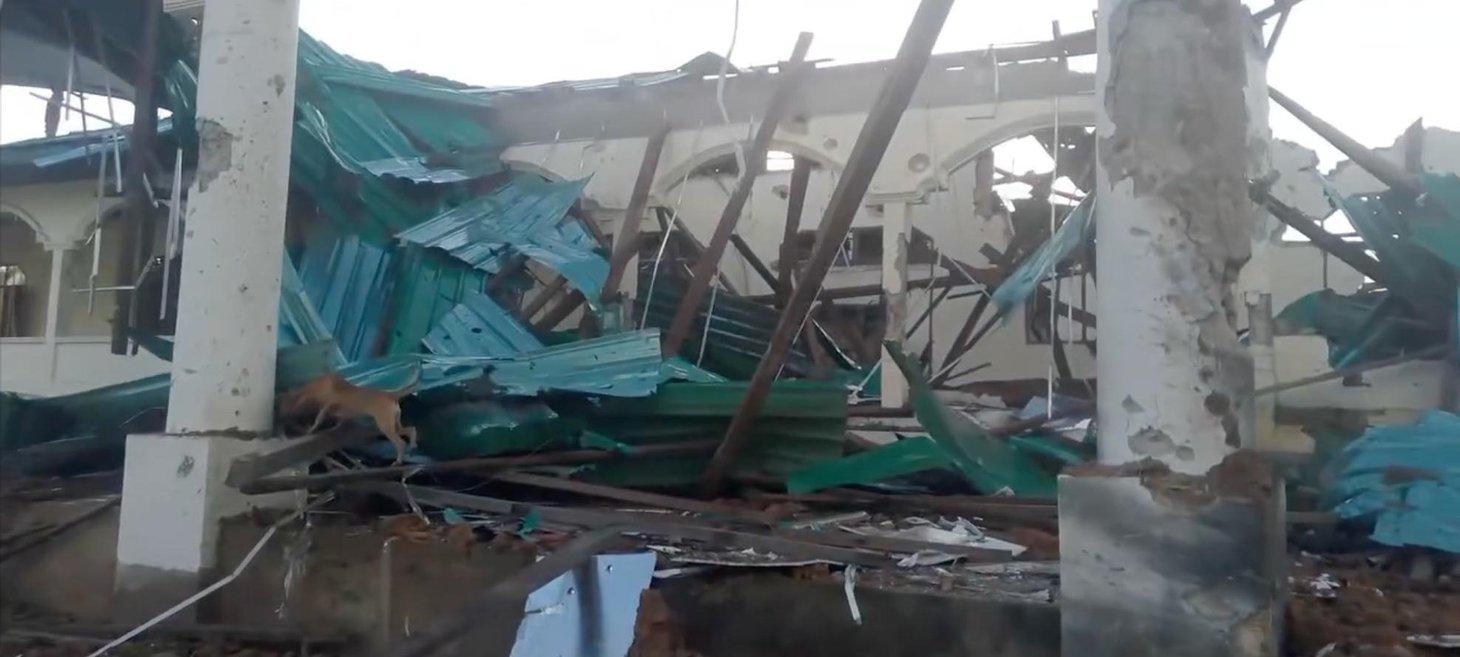
Myanmar junta jet bombs DKBA site near Waley town amid escalating border clashes
On July 19, a Myanmar military junta jet fighter dropped a 500-pound bomb on a building belonging to the Democratic Karen Benevolent Army (DKBA) near Waley Myaing town in Karen State, resulting in casualties and the total destruction of the building. This airstrike occurred as the Karen National Union (KNU), the People's Defence Force (PDF), and allied revolutionary forces were mounting a joint offensive to seize the Waley strategic hill camp, following earlier drone attacks by the junta in the same area. The Waley area has seen intensified fighting since May, with revolutionary forces having seized eight junta bases near the Thai-Myanmar border and now advancing on the last remaining junta stronghold.

Rakhine Fighters Close In on Myanmar Junta’s Naval Base
Rakhine fighters, specifically the ethnic Arakan Army (AA), are advancing on the Myanmar military's Danyawaddy naval base in Kyaukphyu, Rakhine State, by attacking a key outpost just 3 km away and having already seized the road linking Kyaukphyu town with Danyawaddy. The Myanmar military is responding with daily drone attacks, which have reportedly inflicted civilian casualties and caused friendly fire incidents among their own soldiers. The AA has demonstrated significant gains, having captured 14 of Rakhine’s 17 townships and expanding operations into neighboring regions, with fighting also reported around Chinese-backed projects in Kyaukphyu.
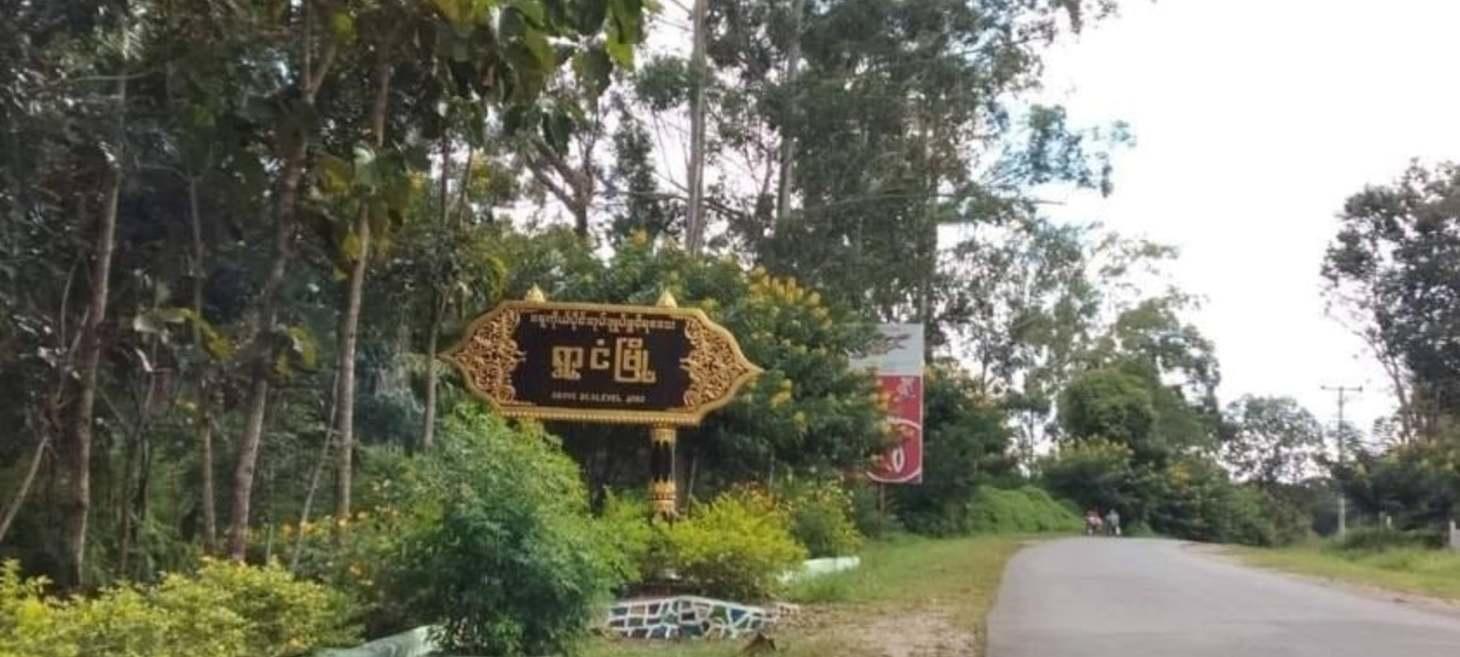
Junta-Backed Militias Step Up Raids, Intimidation in Northern Ywangan Township
In northern Ywangan Township, southern Shan State, residents are living in fear due to stepped-up raids and intimidation by Myanmar military troops and Pyu Saw Hti militia members. These joint forces have stormed villages, conducted door-to-door searches, arrested residents, and threatened them at gunpoint, even confiscating motorcycles and warning villagers to protect the Pyu Saw Hti. This surge in militarization and militia violence has caused trauma and displacement among civilians, with tensions escalating after a monk went missing in late June, leading to daily raids and heightened fear.

NAWNGKHIO CAPITULATION: TNLA’s false priority-setting or lack of broad holistic worldly vision ?
The Ta’ang National Liberation Army (TNLA) capitulated in Nawnghkio due to strategic missteps, including an inability to gather sufficient allied support and misallocation of forces, rather than the military junta's superior fighting ability. These missteps encompass escalating conflicts with other ethnic armed groups like the KIA and SSPP/SSA-N over territorial claims, mistreatment of Burman People’s Defense Force (PDF) allies, and criticized governance of captured areas that has alienated local populations. Fundamentally, these blunders are attributed to the TNLA leadership's pursuit of an expanded Ta’ang State through territorial expansionism at the expense of non-Ta’ang multi-ethnic groups, indicating a lack of holistic vision and a "racial supremacy doctrine".
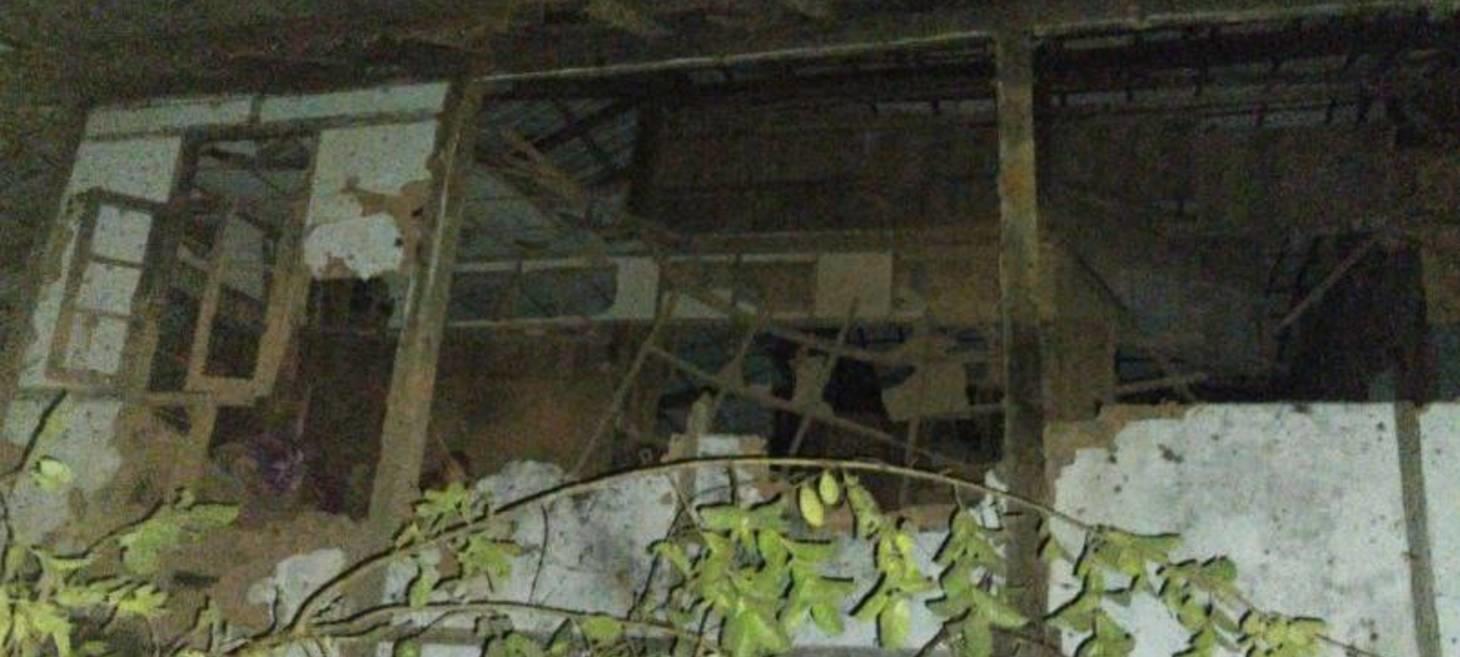
Kyaukphyu shaken by huge blast as AA, Myanmar military clash
The aftermath of an airstrike on the village of Kyauk Pyauk in southern Kyaukphyu Township on July 21 (Photo: Supplied)
Fighting has reportedly intensified in the area in recent days, prompting more airstrikes and artillery attacks by regime forces. . .
Subscribe for full access Hear crucial voices from Myanmar during this time of crisis and get access to our independent coverage.
Subscribe now
Already a subscriber? Log in
URL Copied
Conscription
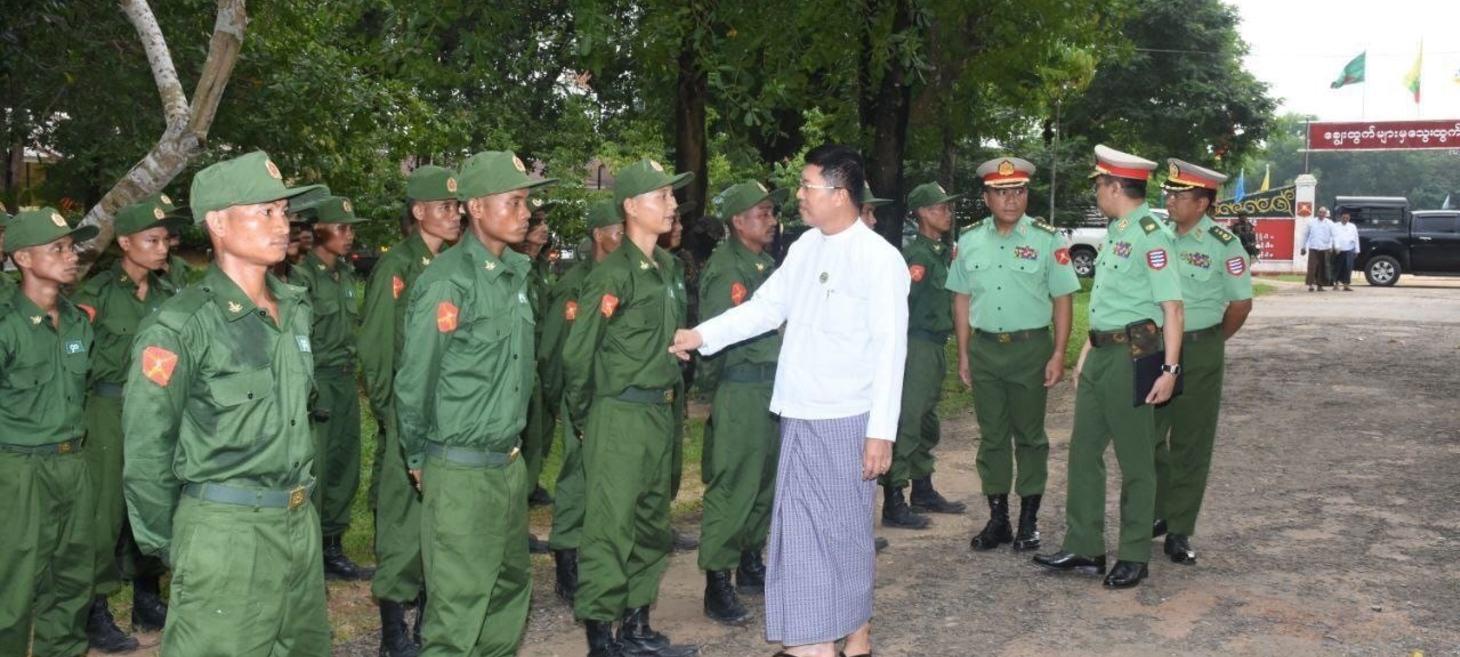
Myanmar Junta Using Conscripts as Cannon Fodder, Defectors Say
Myanmar’s military regime is sacrificing conscripts on the frontlines as "cannon fodder" in desperate attempts to reclaim territory lost to resistance groups. These conscripts, often forcibly abducted, are deployed to dangerous positions, threatened with death for retreating, and subjected to severe punishment if they attempt to escape or self-harm. Consequently, many conscripts are attempting to defect to groups like the Arakan Army (AA), with some succeeding while others are recaptured, injured, or killed in the fighting.
Crime & Narcotics

Myanmar scammers adopt Starlink in bid to evade Internet blackout
Myanmar's call center scammers are increasingly adopting Elon Musk's Starlink satellite internet in Myawaddy to circumvent Thailand's internet cutoffs, which were implemented to undermine their operations. The use of Starlink by these criminal enterprises has more than doubled since April 2024, becoming their primary form of telecommunications access despite being unauthorized in Myanmar, as evidenced by mobile phone data and Google Earth images showing a proliferation of the distinctive white rectangular dishes on rooftops. Thai authorities acknowledge that the smuggling of Starlink equipment is undermining their "three-cut measure" and are engaging with foreign government agencies to persuade Starlink to block services in the border regions to effectively stop these persistent scam operations.

Myanmar tribunal sentences 8 men for murder of Catholic priest
A military tribunal, operated by Myanmar's National Unity Government (NUG), sentenced eight men to 20 years of hard labor for the murder of Catholic priest Father Donald Martin Ye Naing Win. The 44-year-old priest was attacked with machetes and killed on February 14 in Kangyitaw Village, Shwebo Township, after intervening to defend two school teachers from gunmen identified as members of a militia from Ta Ohn village. The incident occurred in a region under NUG control, within the Archdiocese of Mandalay, and the final verdict was issued on July 17 following a five-month investigation.
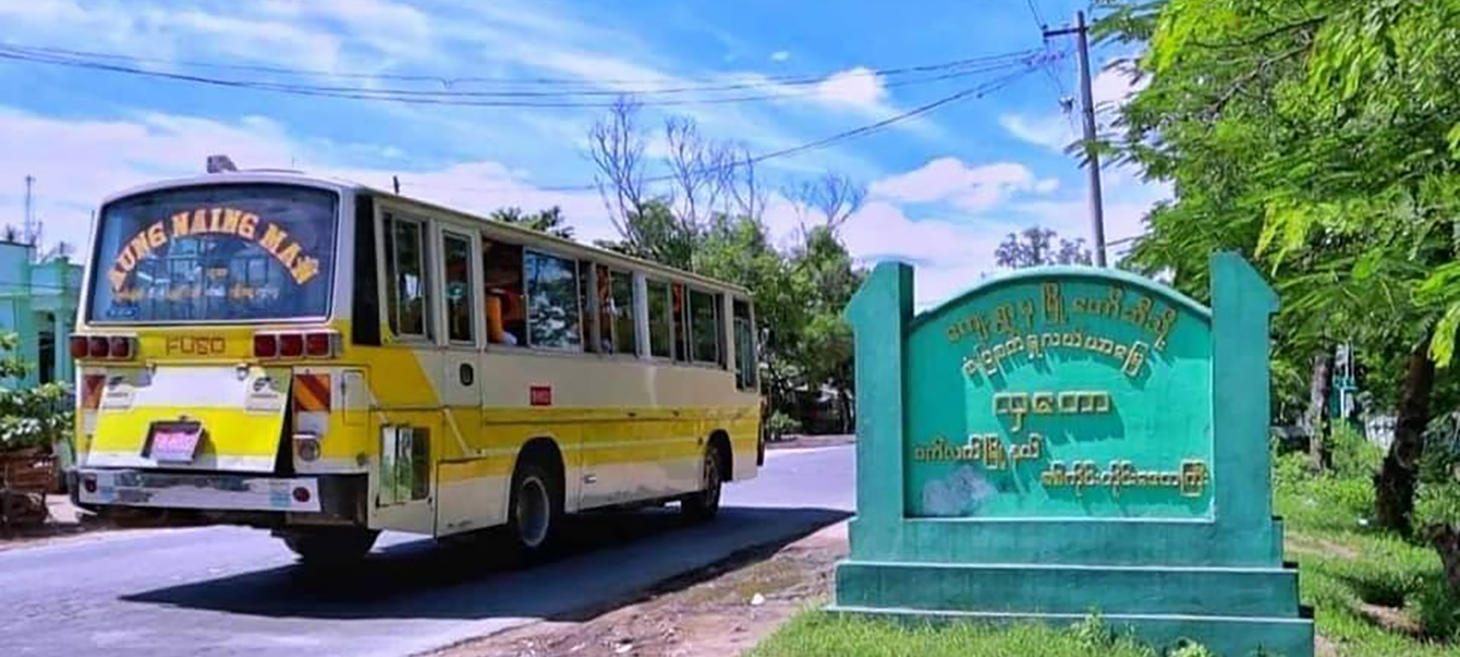
Rogue Sagaing Resistance Fighters Held Over Robbery Gone Wrong
Rogue members of local resistance forces in Sagaing Region’s Wetlet Township committed a robbery at a rice mill on July 12, resulting in the death of the manager who was stabbed during the heist. The gang of 11, including members from two local resistance forces, stole cash and mobile phones before being arrested by the People’s Security Force under the parallel National Unity Government (NUG). This incident highlights a pattern of "rogue" resistance fighter behavior, with the NUG expected to take serious action, following previous cases like the murder of a Catholic priest and the arrest of others for carrying narcotics.

Myanmar scammers boost Starlink connections to stay in business
Scam compounds in Myanmar, which are reportedly defrauding victims globally of billions of dollars, are increasingly using Elon Musk's Starlink satellites to maintain their phone and internet connections. This escalation comes after Thailand severed the signals and cables its telecom providers had been supplying to Myanmar in May 2024, impacting numerous compounds that have emerged along the border. The visible White Starlink dishes on buildings like the Tai Chang compound in Myawaddy, Myanmar, suggest their use by these alleged scam operations.
Ethnic Issues
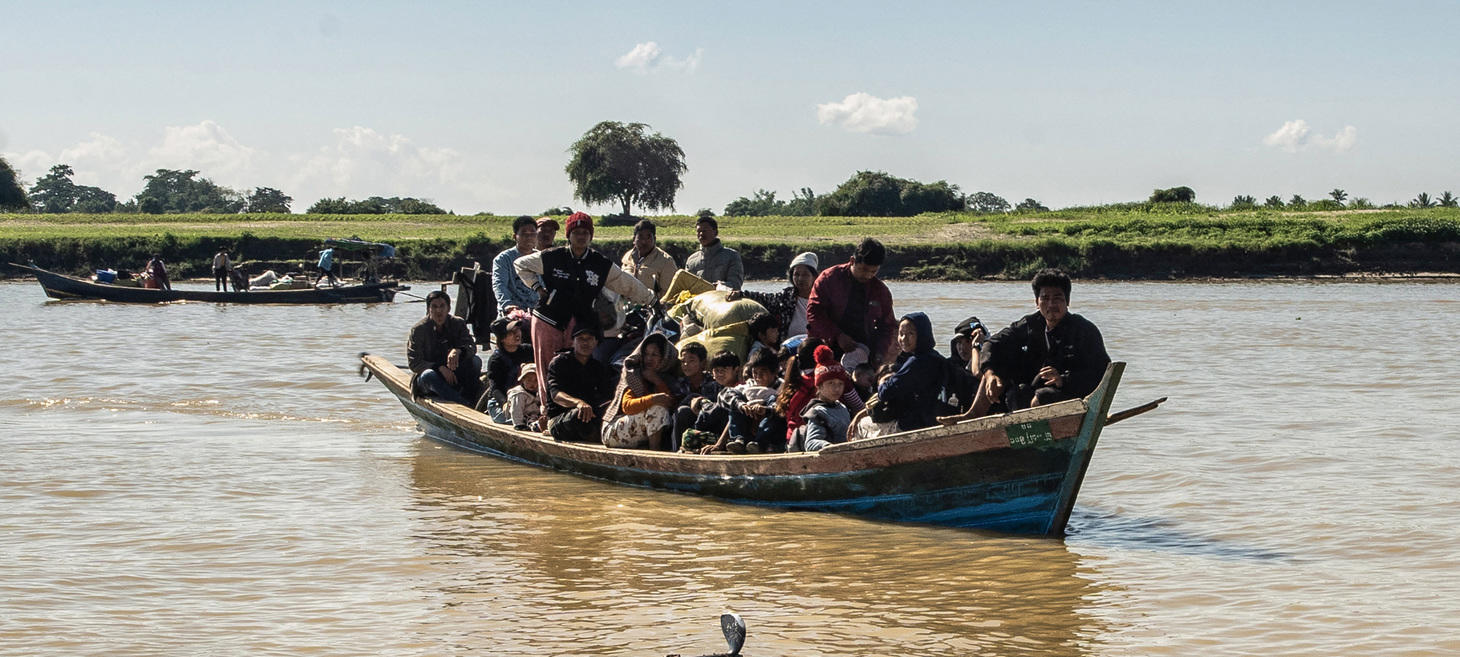
The Importance of Kachin State to Myanmar’s Revolution
Myanmar's civil war has spread across the country, with opposition groups, including the Kachin Independence Army (KIA), controlling a significant portion of its landmass and border townships. The KIA and its allies have achieved considerable military successes, capturing over 300 military installations and 15 towns, and now aim to establish an autonomous Kachin State, including control over valuable jade and rare earth mines. This conflict has drawn the attention of external powers, with China providing military assistance to Myanmar's junta to help defend strategic locations like Bhamo, while the United States may consider supporting ethnic armed organizations in their pursuit of autonomous states.
Foreign Affairs
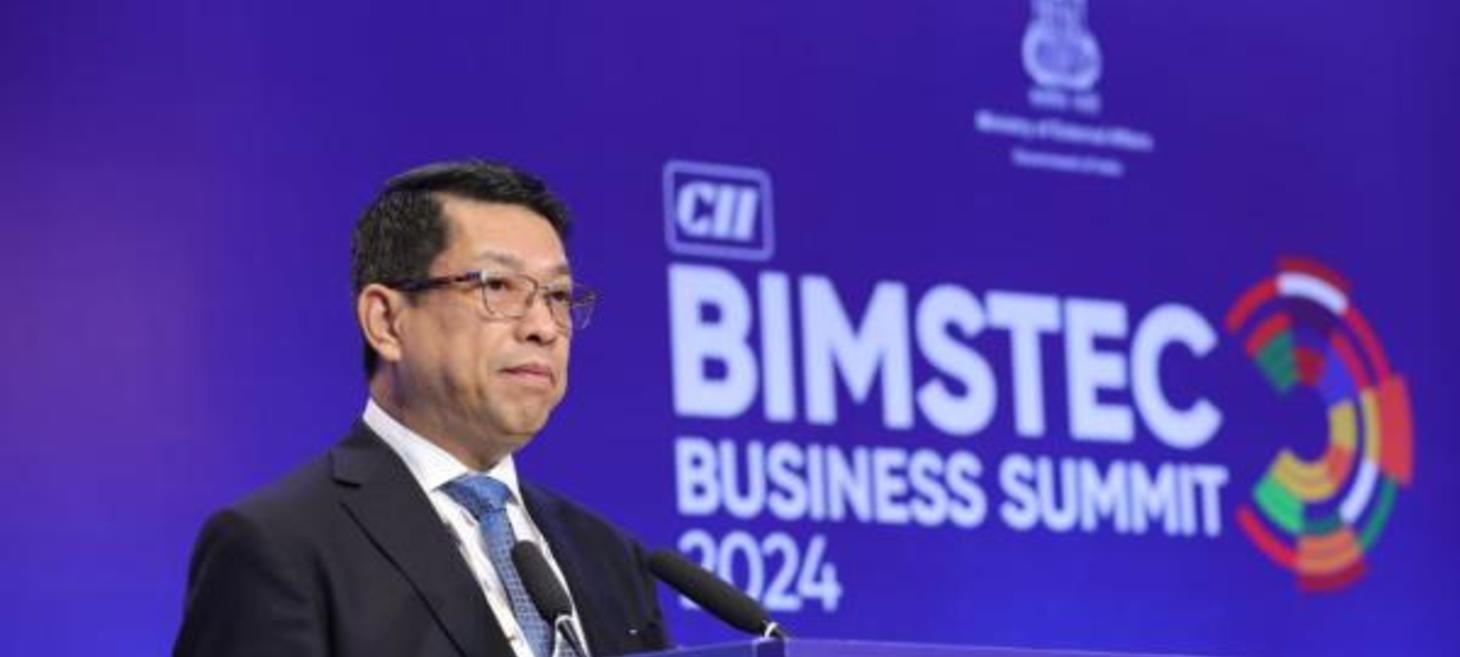
Still no sign of trade talks between Myanmar junta, Trump administration
As of July 22, 2025, there is still no sign of trade talks between the Myanmar military junta and the Trump administration, with two potential trade negotiators for the regime having denied being assigned to hold such discussions. Min Min is identified as the deputy commerce minister of Myanmar’s military junta in this context. The sources also include a list of other news reports from around the same period, detailing ongoing events in Myanmar, such as resistance forces capturing weapons, junta airstrikes leading to casualties, a jade mine collapse, power shortages affecting factories, and various political and social issues.
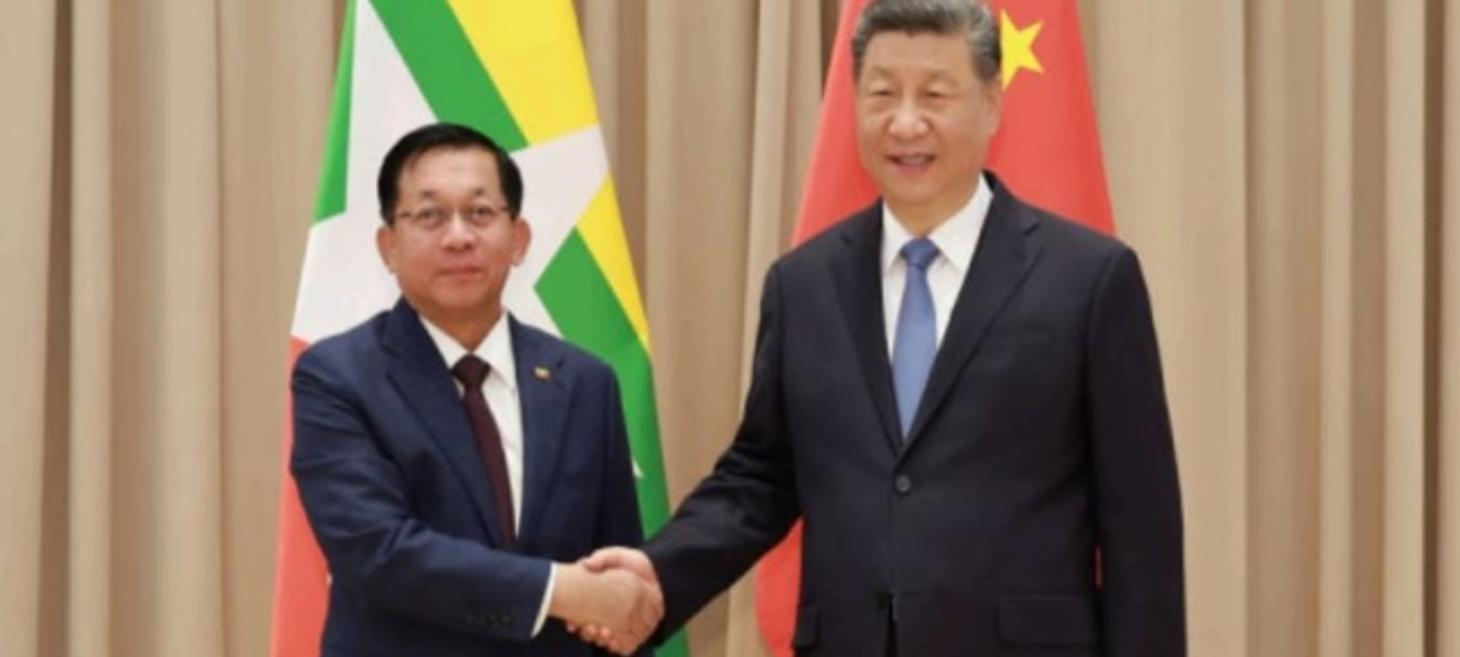
Chinese Firm Helping Myanmar Make Bombs Used Against Civilians: Report
A new report from the Special Advisory Council for Myanmar (SAC-M) alleges that China South Industries Group Corporation and its subsidiaries have provided ongoing technical support to Myanmar’s Defence Industries 21 (DI-21) factory, enabling the production of aerial bombs. These bombs, including 250-kg and 500-kg, fuel air-explosive (FAE), and cluster munitions, are reportedly used by the Myanmar military regime in intensifying airstrikes against civilians and resistance groups, causing over 3,200 deaths since 2023, including nearly 500 children. SAC-M, an independent advisory group, asserts that China South is complicit in grave violations against civilians and is urging the United Nations to impose a global arms embargo on Myanmar and prosecute companies supporting the junta's arms industry.
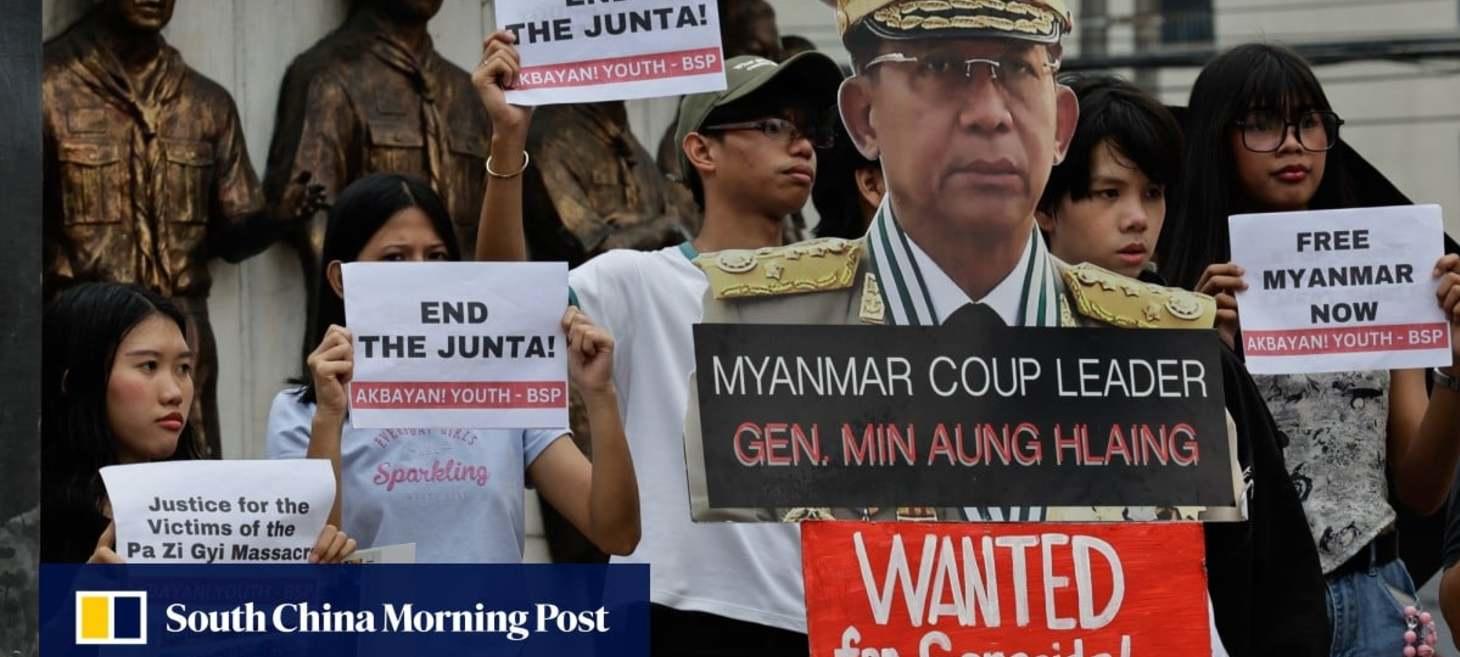
Trump’s ‘huge diplomatic gift’ to Myanmar junta via letter sparks concerns
Donald Trump sent a letter to Myanmar's leader Min Aung Hlaing to discuss a proposed 40 percent tariff on Myanmar imports, to which Min Aung Hlaing proposed a lower tariff and offered to send a negotiation team. Myanmar's state media presented Trump's letter as an "encouraging invitation" to engage with the US, with the leader expressing "sincere appreciation" and honor for the direct contact. Analysts warn that this interaction, described as a "huge diplomatic gift," has unintentionally legitimised the junta, which assumed power in a 2021 coup and is not recognized by the US and most Western countries, potentially undermining Washington's established policy.
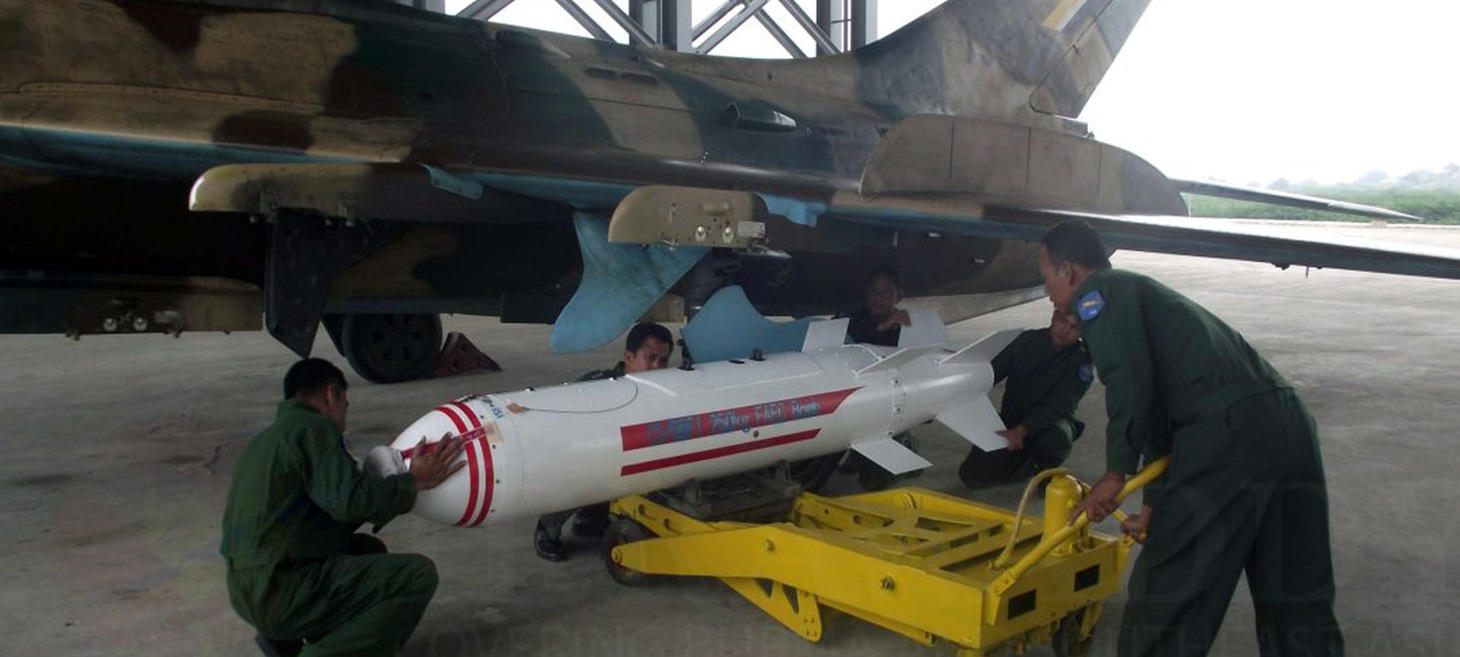
‘Factory of Death’: Report Links Chinese Firms to Myanmar Junta’s Bomb Production
A new report by the Special Advisory Council for Myanmar (SAC-M) links a Chinese state-owned company, China South Industries Group Corporation, and its subsidiaries to the Myanmar military regime’s production of aerial bombs at its Defence Industries 21 (DI-21) factory. This support has included on-site technical assistance, training, remote support, and supplying key components for bombs used in deadly airstrikes against resistance forces and civilians. SAC-M asserts that this makes China complicit in the junta’s grave violations against civilians and urges China to immediately end all support for Myanmar military arms manufacturing.
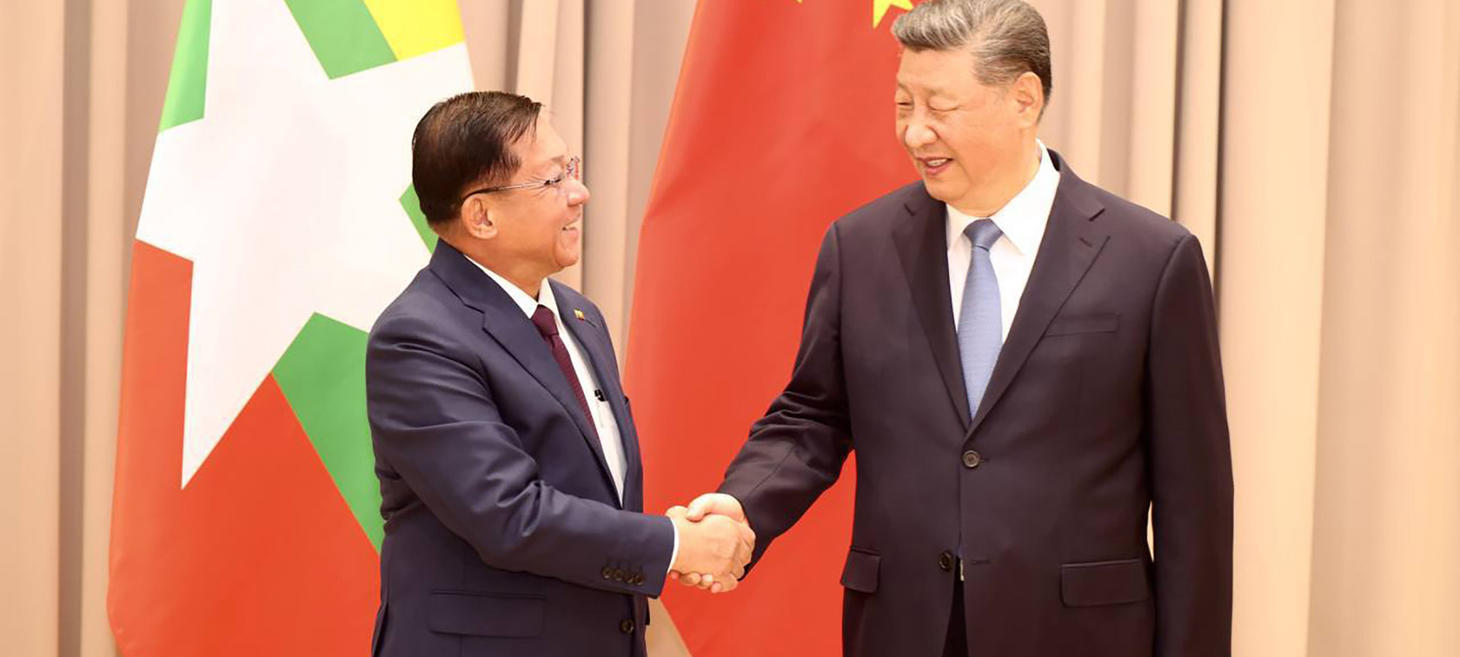
Myanmar Crisis Spells Opportunity for U.S.-India Cooperation
The evolving crisis in Myanmar, where the junta's control is weakening but China's influence is growing, presents a critical test for U.S.-India relations and regional stability. Historically, both the U.S. and India have adopted cautious policies, based on the mistaken belief that the junta could not be defeated, which has inadvertently strengthened China's position and isolated the resistance movement. However, the convergence of U.S. and Indian interests offers a significant opportunity for a robust partnership to counter Chinese dominance, weaken the junta, and support a negotiated settlement that could lead to a stable, democratic, and self-reliant Myanmar.
General News
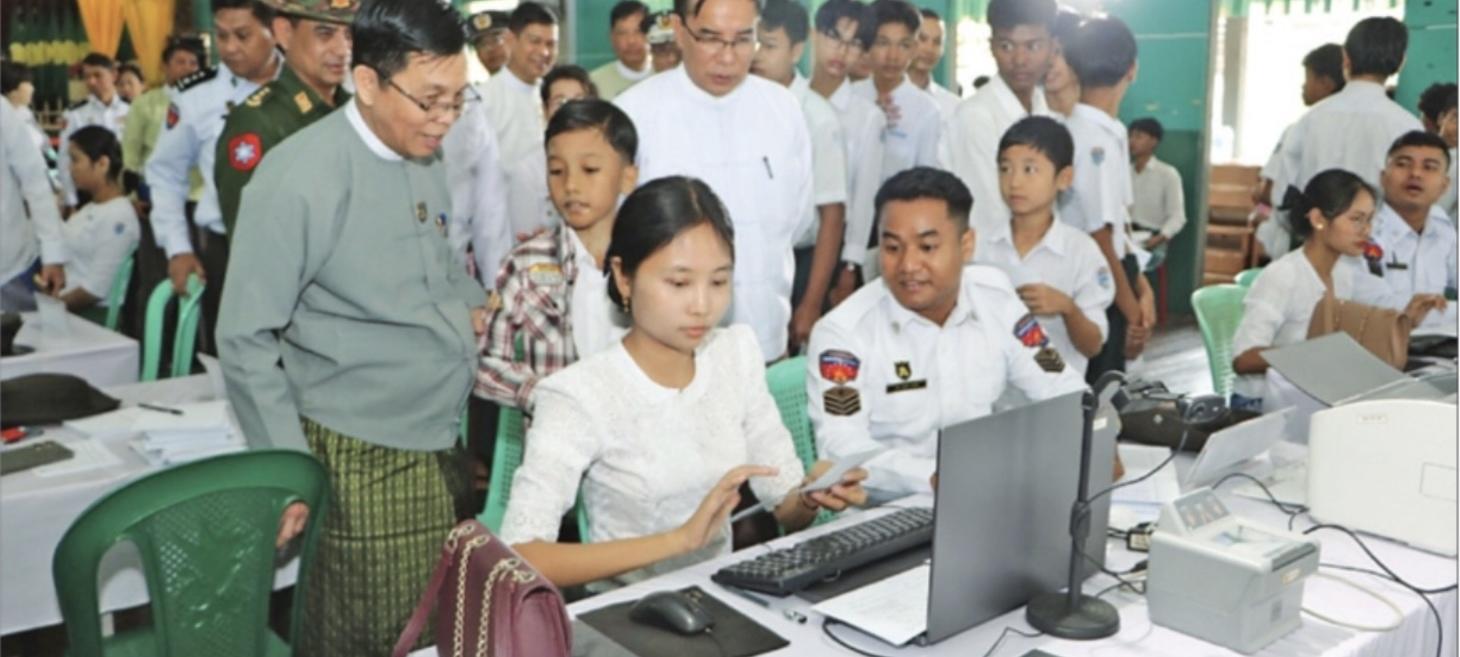
Myanmar government dismisses e-ID surveillance rumours, says system aims for secure digital identification
The Ministry of Immigration and Population has dismissed rumors of surveillance regarding Myanmar's e-ID system, clarifying its true purpose is to serve as a secure digital platform for verifying identities and managing personal information. This system will contain both demographic and biometric data, including ten fingerprints, facial data, and iris scans, and will issue each person a unique, lifelong 10-digit identification number. Its primary goal is to help individuals easily and securely prove their identity for services such as banking, voting, and government applications, while also preventing identity theft and streamlining processes in line with international standards.

True believers: The Myanmar-Americans who stand with Trump
Many Myanmar-Americans, particularly those who voted for Donald Trump in 2024, continue to show strong support for him, despite his administration's policies that included drastic cuts to aid for Myanmar, a near-total travel ban on its citizens, and threats of tariffs. This seemingly surprising allegiance is largely driven by a demographic profile that matches many of Trump's supporters: they are often socially conservative, Evangelical Christian, and economically and educationally disadvantaged, with support for Trump's perceived commitment to Christian values and his stance against "woke" culture playing a significant role. Furthermore, some supporters, like James Myat, rationalize the negative policy changes by blaming factors beyond Trump's control, such as corrupt NGOs or a lack of accurate information, while others hold out hope that he might eventually help Myanmar, with highly politicized churches playing a key role in mobilizing this community's support.
Governance & Rule of Law

MYANMAR Yangon: Two more political prisoners die in prison from lack of healthcare
Two political prisoners, Ma Wut Yi Aung and Ko Pyae Sone Aung, died on July 19 in Myanmar's prisons due to a lack of proper medical care, extending a long list of victims of the military regime’s system. Ma Wut Yi Aung, an activist, died from severe head injuries sustained during torture and was denied transfer to an external hospital despite family requests, while Ko Pyae Sone Aung, a member of the National League for Democracy (NLD), succumbed to chronic health issues without adequate treatment. These deaths highlight an ongoing crisis where at least 14 political prisoners died from lack of care by early July of this year, with requests for outside hospital treatment frequently rejected, even for prominent figures like NLD leader Aung San Suu Kyi, who also suffers from poor health and limited access to care.
Natural Disaster
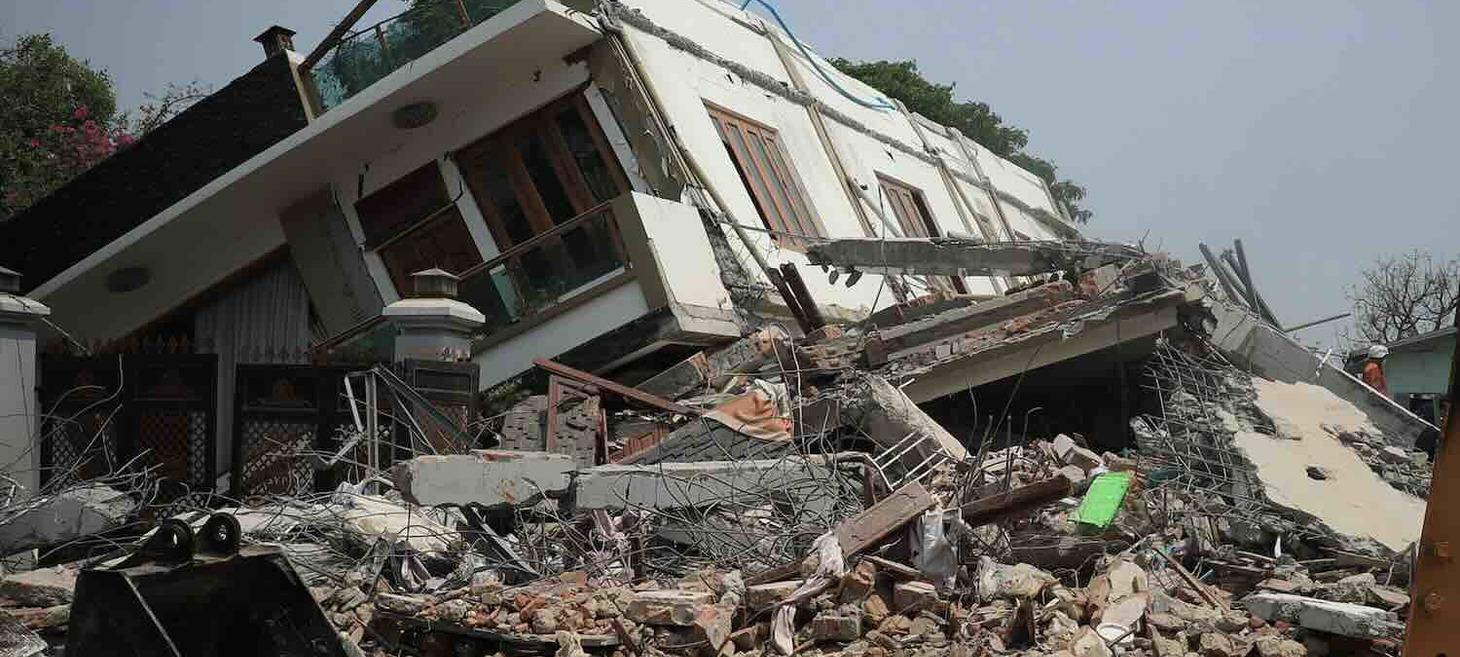
Seismologists Identify Rare Supershear Event During Devastating Myanmar Quake
The March 28, 2025, Myanmar earthquake, a 7.7 magnitude event that caused over 5,000 casualties, involved a rare 'supershear' rupture where the primary seismic energy wave moved at 5 to 6 kilometers per second through the southern portion of the Sagaing Fault. Supershear velocity occurs when the slipping part of the fault moves faster than the shear-wave velocity, which is analogous to supersonic speed creating a "sonic boom". This exceptionally long (around 480 km) and straight rupture, comparable to the 1906 San Francisco earthquake, provides crucial near-fault seismic data that seismologists hope will lead to a better understanding of fault segmentation and geometry, aiding in the prediction of future major seismic events.
Natural Resources
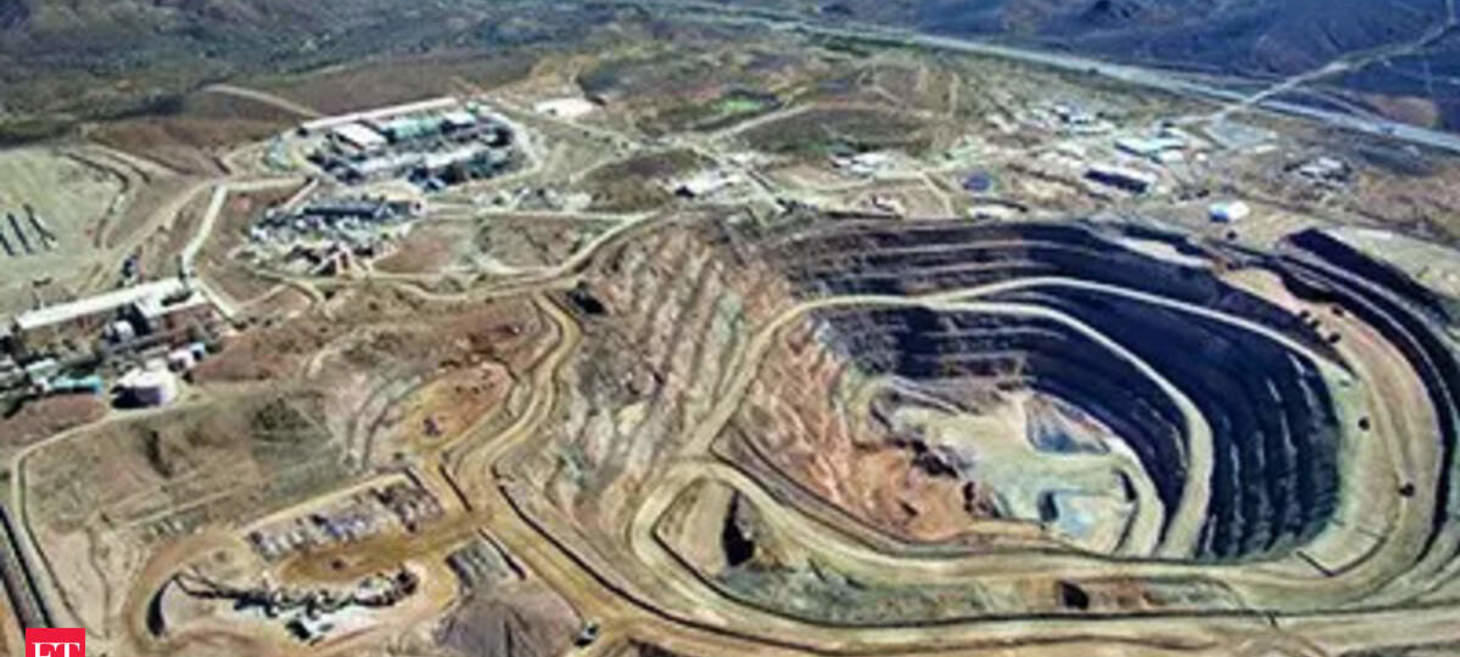
Rare earth magnet for ecocide in Myanmar
Concerns are rising over environmental damage and human rights violations stemming from rare earth magnet exports from Myanmar's Kachin State to China. Mining activity in this region has sharply increased since 2021, leading to deforestation, water pollution, and health risks for local communities, with Myanmar supplying a significant portion (60-87%) of China's rare earth magnet imports. Despite generating billions in export revenue, the benefits are unequally distributed, with armed groups and private companies operating the mines reaping substantial profits.